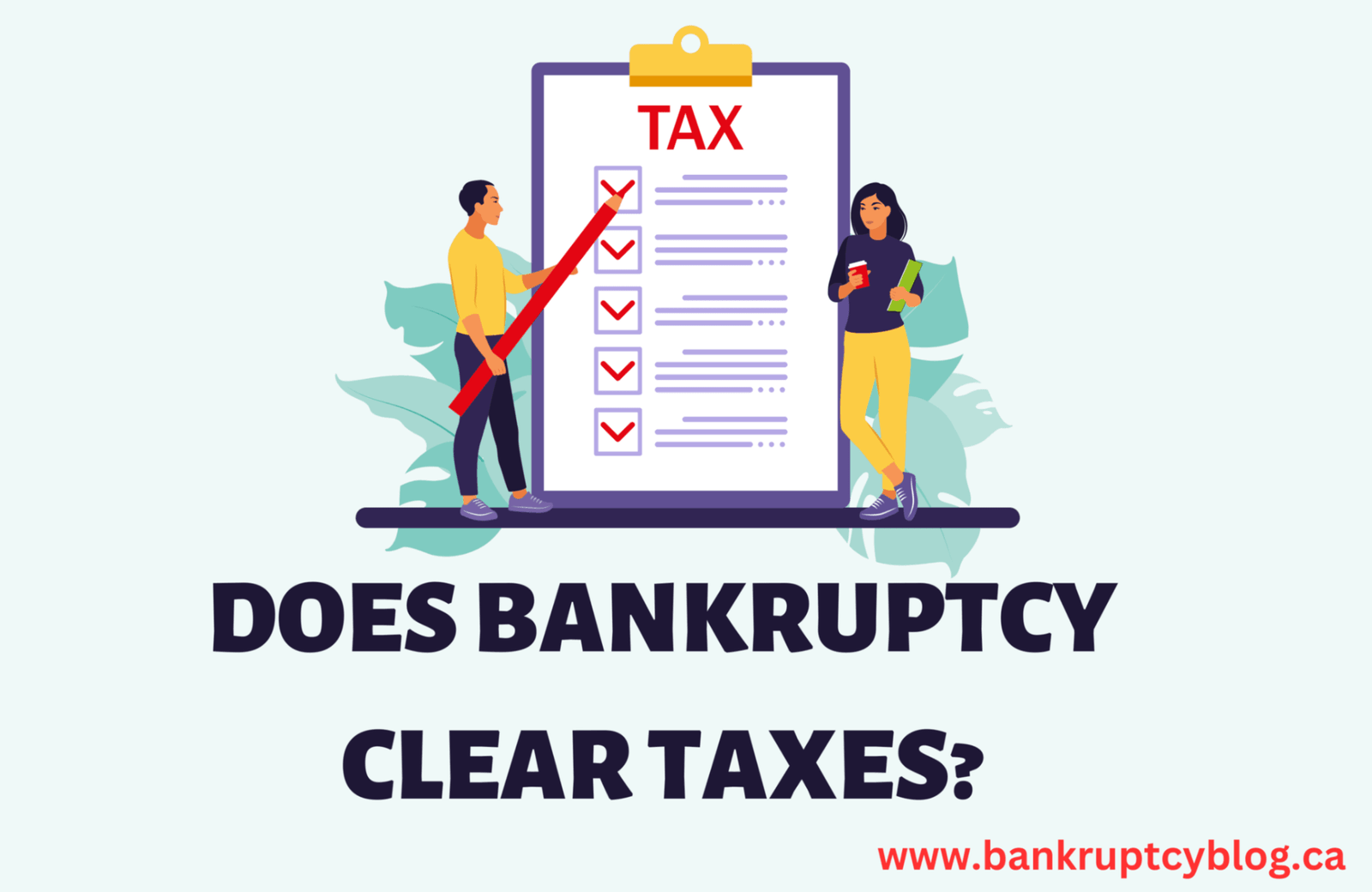
How Long Does a Bankruptcy Stay on Your Credit History?
Filing for bankruptcy is a significant financial decision that can have long-lasting effects on your credit history. Whether you're considering bankruptcy or have already gone through the process, understanding how long it will impact your credit report is crucial for planning your financial recovery. This blog will delve into the details of how bankruptcy affects your credit history, the differences between Chapter 7 and Chapter 13 bankruptcies, and strategies for rebuilding your credit post-bankruptcy.
Bankruptcy and Credit Reports
Bankruptcy is a legal process designed to help individuals and businesses eliminate or repay their debts under the protection of the bankruptcy court. The two most common types of bankruptcy for individuals are Chapter 7 and Chapter 13.
- Chapter 7 Bankruptcy: Also known as "liquidation bankruptcy," Chapter 7 entails selling a debtor's non-exempt assets to pay creditors. Most unsecured debts, such as credit card balances and medical bills, are discharged, meaning the debtor is no longer legally obligated to pay them.
- Chapter 13 Bankruptcy: Known as "reorganization bankruptcy," Chapter 13 allows debtors to keep their assets and repay all or part of their debts over a three to five-year period through a court-approved repayment plan.
Duration of Bankruptcy on Your Credit Report
The length of time a bankruptcy stays on your credit report is determined by the type of bankruptcy filed.
- Chapter 7 Bankruptcy: This type of bankruptcy remains on your credit report for ten years from the date of filing. The lengthy duration reflects the severity of the debt discharge process and its impact on creditors.
- Chapter 13 Bankruptcy: This type of bankruptcy stays on your credit report for seven years from the date of filing. Since Chapter 13 involves a repayment plan, the credit reporting agencies consider it less severe than Chapter 7.
Impact on Credit Scores
The presence of a bankruptcy on your credit report can significantly impact your credit score. Initially, your score can drop dramatically—often by 100 to 200 points. The exact decrease depends on your credit score before filing and other factors in your credit history.
A lower credit score can make it challenging to obtain new credit, secure favorable interest rates, or even get approved for rental housing. However, the impact of a bankruptcy on your credit score diminishes over time, especially if you adopt good financial habits post-bankruptcy.
Rebuilding Your Credit After Bankruptcy
While a bankruptcy remains on your credit report for several years, it's possible to rebuild your credit and improve your financial standing. Here are some ways that will help you recover:
1. Set and stick to a budget
Developing and adhering to a budget is crucial for financial stability post-bankruptcy. A budget helps you manage your income, control expenses, and avoid falling into new debt.
2. Build an Emergency Fund
An emergency fund provides a financial cushion for unexpected expenses, reducing the likelihood of needing to rely on credit in emergencies. Aim to save at least three to six months' worth of living expenses.
3. Monitor Your Credit Reports
Regularly check your credit reports from the three major credit bureaus (Equifax, Experian, and TransUnion) to ensure the information is accurate. You are entitled to a free credit report from each bureau once a year through AnnualCreditReport.com.
4. Apply for a Secured Credit Card
A secured credit card needs a cash deposit as security, which is then used to determine your credit limit. Using a secured card responsibly—making small purchases and paying off the balance in full each month—can help you rebuild your credit.
5. Consider a Credit-Builder Loan
Credit-builder loans are designed to help people build or rebuild their credit. These loans are typically small and require you to make regular payments that are reported to the credit bureaus.
6. Pay All Bills on Time
Paying your bills on time is one of the most efficient strategies to boost your credit score. Late payments can have a significant negative impact, so set up reminders or automatic payments to ensure you never miss a due date.
7. Keep Credit Utilization Low
Credit utilization—the ratio of your credit card balances to your credit limits—accounts for a significant portion of your credit score. Aim to keep your credit utilization below 30% to show lenders that you can manage credit responsibly.
Myths About Bankruptcy and Credit
Several myths surround bankruptcy and its impact on credit. Here are some common misconceptions:
Myth 1: You will never receive credit again
Many people believe that filing for bankruptcy means they will never be able to get credit again. This is not true. While obtaining credit immediately after bankruptcy can be challenging, many lenders are willing to extend credit to individuals who have demonstrated financial responsibility post-bankruptcy.
Myth 2: All Your Debts Will Be Wiped Out
Not all debts are dischargeable in bankruptcy. For example, student loans, child support, alimony, and certain tax obligations typically cannot be discharged. It's essential to understand which debts will remain after your bankruptcy is complete.
Myth 3: Your Credit Score Will Never Recover
While bankruptcy significantly impacts your credit score, it is possible to recover and even achieve a good credit score over time. With consistent, responsible financial behavior, you can rebuild your creditworthiness.
Legal and Financial Advice
Bankruptcy and its aftermath can be complex, and it's often beneficial to seek professional advice. Here are two key resources:
1. Bankruptcy Attorney
A bankruptcy attorney can provide guidance on the best type of bankruptcy for your situation, help you manage the legal process, and ensure that your rights are protected.
2. Credit Counselor
A certified credit counselor can assist you in creating a budget, developing a debt repayment plan, and offering advice on rebuilding your credit. Many non-profit organizations offer credit counseling services at low or no cost.
Conclusion
Filing for bankruptcy is a significant decision with long-term implications for your credit history. A Chapter 7 bankruptcy stays on your credit report for ten years, while a Chapter 13 bankruptcy remains for seven years. Despite the initial negative impact on your credit score, there are numerous strategies you can employ to rebuild your credit and regain financial stability. By understanding the process and committing to responsible financial behavior, you can recover from bankruptcy and work towards a brighter financial future.
Remember, while bankruptcy can provide a fresh start, it's crucial to learn from the experience and take steps to ensure that you do not find yourself in the same situation again. With patience, discipline, and the right strategies, you can rebuild your credit and achieve financial health.
FAQs:
Q1. How long does a Chapter 7 bankruptcy stay on your credit report?
- A Chapter 7 bankruptcy remains on your credit report for ten years after it is filed.
Q2. How long does a Chapter 13 bankruptcy stay on your credit report?
- A Chapter 13 bankruptcy stays on your credit report for seven years from the date of filing.
Q3. Why does Chapter 7 bankruptcy stay on your credit report longer than Chapter 13?
- Chapter 7 bankruptcy involves the liquidation of assets to discharge debts, which is seen as a more severe financial decision compared to Chapter 13, which includes a repayment plan over several years. Thus, the impact of Chapter 7 is considered longer-lasting.
Q4. Can a bankruptcy be removed from your credit report before the seven or ten years are up?
- Generally, bankruptcies cannot be removed from your credit report before the seven or ten-year period unless there is an error or discrepancy. In such cases, you can dispute the information with the credit bureaus.
Q5. How does bankruptcy affect your credit score?
- Filing for bankruptcy can significantly lower your credit score, often by 100 to 200 points, depending on your credit status before filing. The impact lessens over time, particularly if you maintain good credit habits.
Q6. Can you rebuild your credit while a bankruptcy is still on your report?
- Yes, you can rebuild your credit while a bankruptcy is still on your report by adopting responsible financial practices such as paying bills on time, Keeping credit utilization low and utilizing secured credit cards or credit-building loans.
Q7. Will lenders consider your credit applications if you have a bankruptcy on your record?
- Some lenders may be hesitant to approve credit applications from individuals with a bankruptcy on their record, but others may be willing to work with you, especially if you demonstrate improved financial responsibility post-bankruptcy.
Q8. Can you get a mortgage after filing for bankruptcy?
- Yes, you can qualify for a mortgage after filing for bankruptcy. The waiting period typically ranges from two to four years, depending on the type of bankruptcy and the mortgage lender's policies. Rebuilding your credit during this time is crucial.
Q9. Does bankruptcy affect your ability to rent an apartment?
- Bankruptcy can affect your ability to rent an apartment, as landlords often check credit reports as part of the application process. However, providing a good rental history and demonstrating your financial stability can help mitigate this.
Q10. Do all debts get discharged in bankruptcy?
- No, not every debt can be discharged in bankruptcy. Common exceptions include student loans, child support, alimony, and certain tax obligations. It's important to understand which debts will remain after your bankruptcy is complete.
Q11. How can you check if your bankruptcy is accurately reported on your credit report?
- You can check your credit report from the three major credit bureaus (Equifax, Experian, and TransUnion) through AnnualCreditReport.com. Review your report to ensure the bankruptcy information is accurate and up-to-date.
Q12. Can you dispute a bankruptcy entry on your credit report?
- Yes, if you believe there is an error in how the bankruptcy is reported, you can file a dispute with the credit bureaus. They are required to investigate and correct any inaccuracies.
You can also check the information regarding How to apply for Bankruptcy



